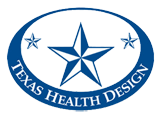Taxing Questions! Getting A Tax Deduction On Health Premiums

Recently a fellow health insurance broker and I had a discussion about health insurance premiums and how they are increasing at a rate that will doom the industry in just a few years. We lamented about rising deductibles and ever increasing costs and smaller physician networks. We even ventured into the realm of taxation and how higher income earners will certainly be asked to carry a larger burden in the future. Our howling about how bad things have gotten and how they were better in the old days, ok, just a decade ago, led us to a simple question about the deductibility of health insurance premiums and whether individuals and families could write off their health insurance premiums from their taxes. Since we both had different opinions and we've both been selling health insurance for more than 10 years it is clear that clients need clarification and answers on this important subject. Remember, I'm not a tax preparer or accountant, so these are general rules and you'll need to investigate whether they apply to your situation. Consult your own tax advisor.
Can You Write Off Health Insurance Premiums?
As always when we deal with the federal government, the answer to any question is, "It depends". Let's run through the easy answers first.
If You Own A Business, Write Off Those Health Premiums.
If you are a business owner and you are using a Schedule A, to itemize your business expenses, you may typically write off your health insurance premiums and those premiums associated with the health insurance costs of your employees. The ability to deduct your health premiums is a great way to offset some income and reduce your taxes.
No Business? You May Still Be Able To Get A Tax Deduction
Even though you don't own a business you may still be able to deduct your health insurance premiums for the year, but your ability to take a tax deduction may depend on how much you make and how much you pay for health insurance premiums and all of your other health related expenses in the year. In order to take a tax deduction for health insurance premiums in a calendar year, your total medical related expenses (medical costs and health premiums) must be 10% of your Adjusted Gross Income or greater in 2014. There is a temporary exception for people 65 and older through 2016 which drops the threshold to 7.5% of AGI.
Totaling Those Medical and Dental Expenses
You can include the costs of diagnosing, treating, easing or preventing disease. The cost of insurance premiums that you pay for policies that cover medical care qualifies, as does the cost of some long-term care insurance. The cost of prescription drugs and insulin also qualify. You may also include mileage and travel expenses associated with seeking the medical care. I recommend checking out the IRS website on the subject for more information - IRS medical deductions.
For many clients, premiums that cost $10,000 or $15,000 a year will easily throw them into a category where they exceed the 10% level and therefore will be able to write off their medical and dental insurance premiums.
No Double Dipping
My friends that have Health Savings Plans are already thinking about it! No, if you've used your health savings dollars on a specific health related expense, you can't count the expense toward your total expenses here that help you exceed the 10%. If you were able to use these dollars you'd end up double dipping and counting the money twice.
If you have questions about health insurance or need a quote please contact us today via phone at 713-422-2935. You can also get a quote online right now by clicking, Get A Quote Now!
Remember, taxes are complicated and you'll need to connect with a tax advisor or preparer that understands the impact that health insurance and the Affordable Care Act will have on your finances. If you need health insurance or have questions about your policy, don't hesitate to call us at 713-422-2935.
Jason Bohmann











